Built in 1953, the aptly named Old Library was the first free-standing library building on the campus where I teach. It eventually housed painting studios and since the late ’80s, has been home to the photography and graphic design programs. I love this space for all its mid-century collegial charm. The stately brick exterior is surrounded by mature honeylocust trees, while inside, built-in bookshelves from its past life flank the sides of computer labs and ample hallways. Soaring windows welcome an abundance of natural light and offer views of the grassy quad where students gather in good weather to play frisbee, sunbathe or strum ukeleles.
But perhaps my most favorite thing about the building is this original Modess sanitary napkin dispenser that lives in the 2nd floor women’s bathroom.
The juxtaposition between the awkwardly squatted width of Modess (how cute is that e?), the script …because and the airy lowercase geometric sans “of the whisper-soft fabric cover” just slays me every time. And check out those engraved letters on the coin slot.
I’m teleported back to a Judy Blume novelesque scene in my own junior high school bathroom stall and the mortified panic of not being prepared for that time of the month. When we talk about menstruation, we speak in a coded language of discretion and euphemisms. Nowhere on this dispenser does it actually say what it’s providing. And, it doesn’t have to: the …because says it all.
I had to know more.
From the late 1940s–1970s, Modess implemented a revolutionary campaign with only two words:
Modess …because.
According to the book, Flow: The Cultural Story of Menstruation by Elissa Stein and Susan Kim, Young & Rubicam’s print advertisements “created a surreal, virtually wordless world of high fashion, unattainable elegance, and fabulous wealth, with absolutely zero reference to menstruation”(p.130). This was in no small part thanks to the genius of Robert Johnson of Johnson & Johnson, who understood this secret language. Women didn’t want to talk about their periods, let alone read about it in advertisements, right?
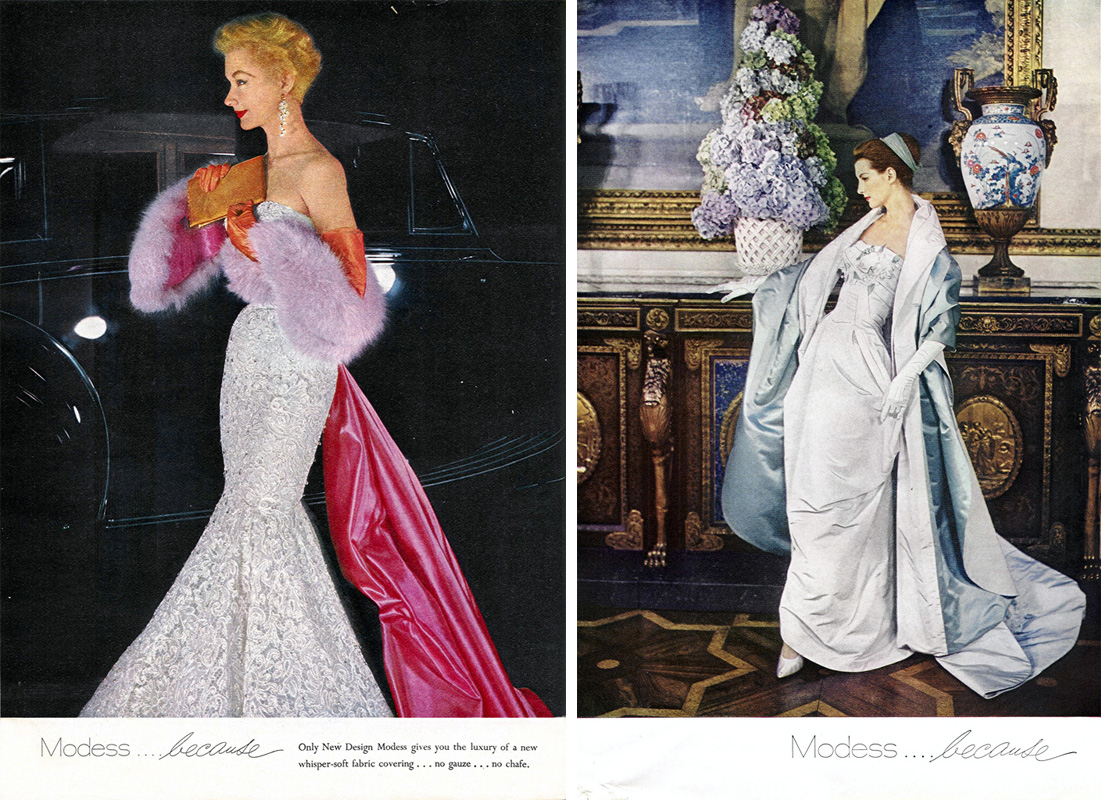
Swift and casual, the loosely handlettered …because implies a kind of internal monologue: …because I’m wearing this swanky-ass dress and don’t want to broadcast a visit from Aunt Flo. …because I will die of embarrassment if someone hears me unwrapping this pad and discovers I’m surfing the crimson wave.
Lasting well into the 1970s, the campaign is considered one of the most important of the 20th century.
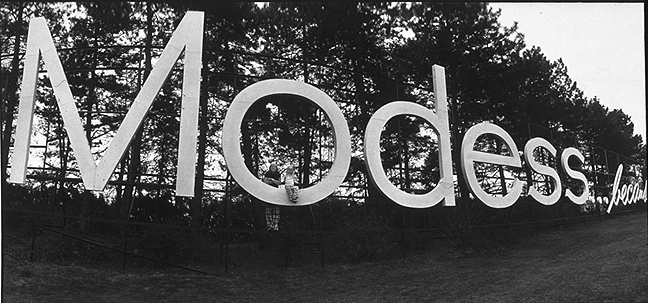
In 2014, the Metropolitan Museum of Art’s Costume Institute exhibited the work of renowned fashion designer Charles James, whose beautiful dresses were the main attraction in many of the Modess advertisements. Why look at images of a not-very photogenic product when you can look at images of the woman you wish you could be?
To learn even more about the history of the Modess campaign, as well other sanitary napkin dispensers from the era, check out the mind-blowingly impressive collections of the Museum of Menstruation, here and here (and there goes your afternoon, bye!).
Back in the 2nd floor bathroom of the Old Library, I wonder if my aging, functionless dispenser will ever be replaced. I wonder if the “success” and ubiquity of the campaign actually perpetuated the culture of shame around menstruation in my childhood. In the meantime, I enjoy its quirky and beautiful lettering. Because… Modess.
Images of the Modess dispenser by Shauna Keating.
Share your love for letters with us on Instagram or tweet at us @alphabettes_org with the hashtag #letterlove.
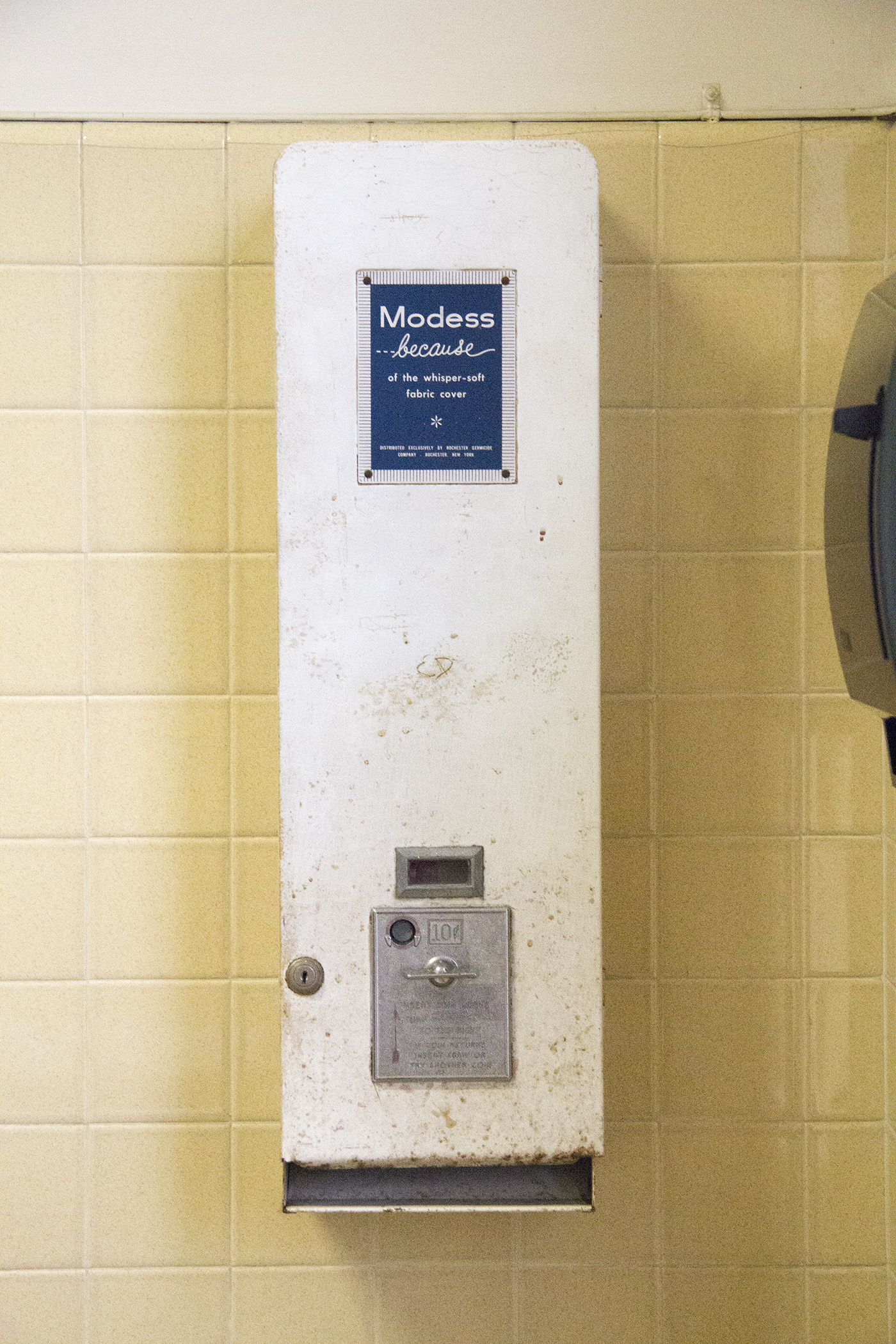
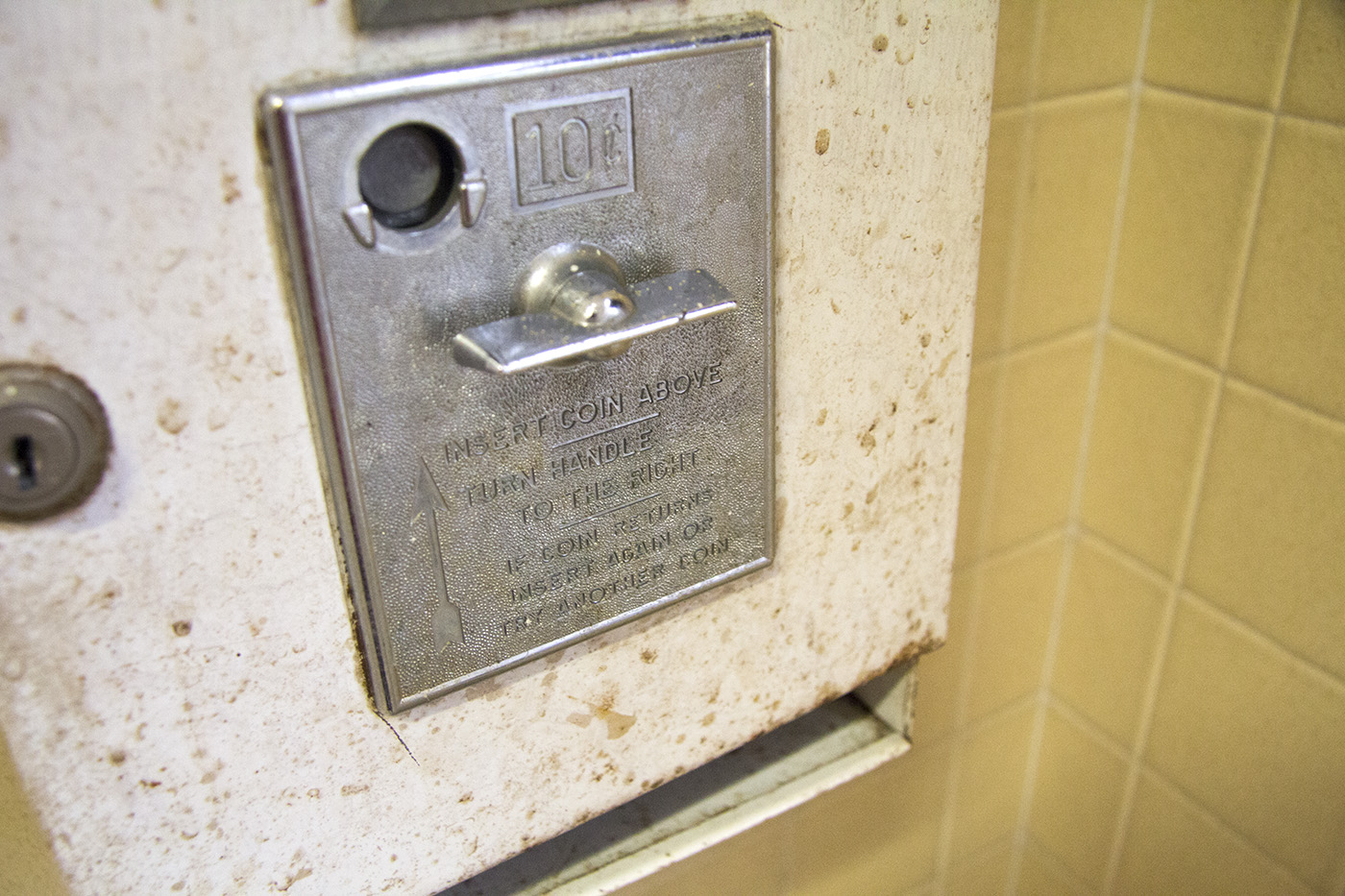
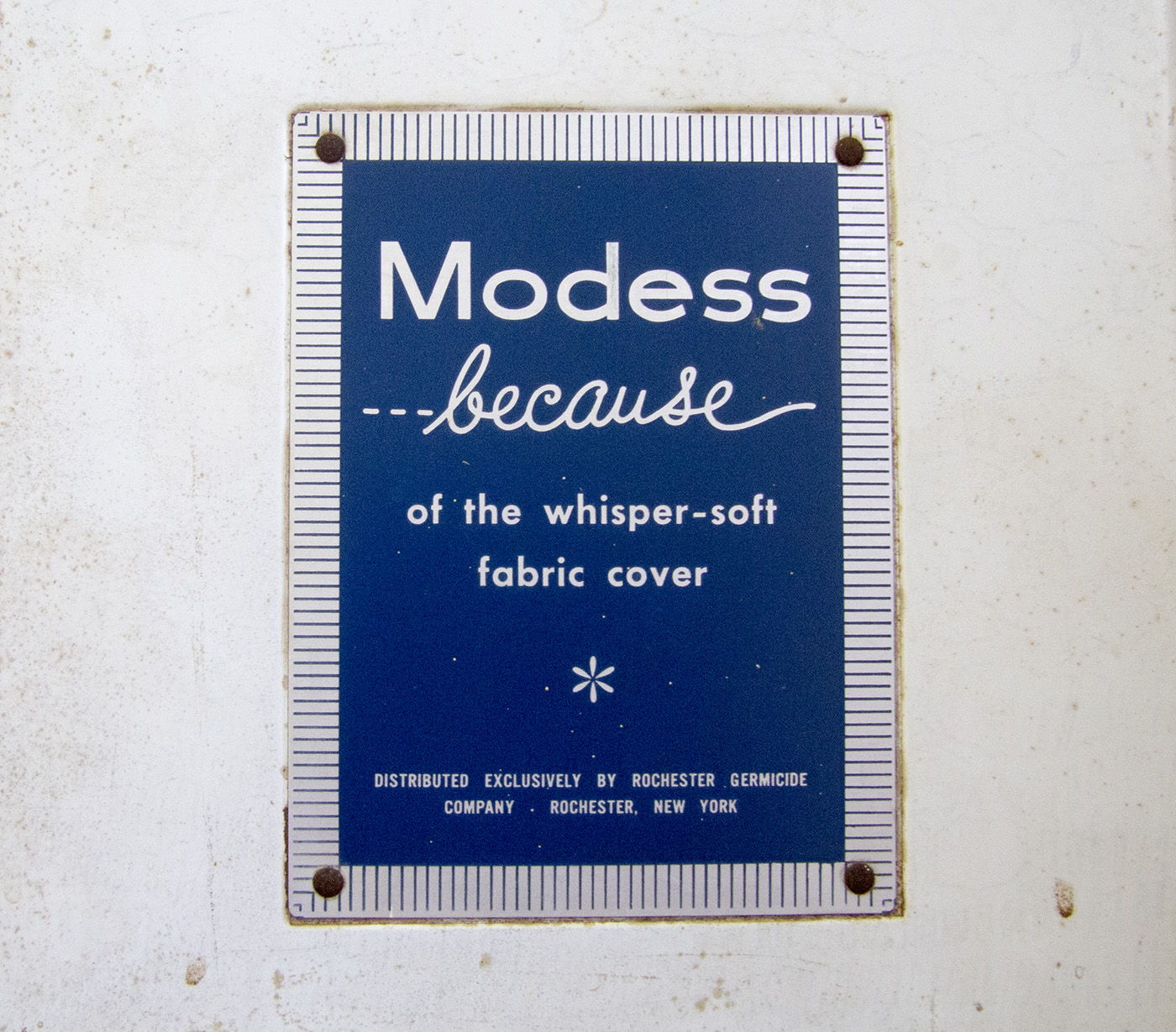
Oddly enough, researching the history of the title sequence for, “To Kill a Mockingbird” brought me here. Evidently, Stephen Frankfurt, who designed that films title sequence, also designed an amazing television ad for Modess.
Great post.
Wow I had been curious I am a custodian at a school and I took a picture today a sanitary napkin dispenser only the one that hangs at the school I work at has $0.05 on the handle
Actually looking for a way to send a picture here but can’t seem to figure this out the school was built in 1938 and I just think it’s really cool that a known piece of it is still hanging on a wall in a washroom
Hei Sherry, if you want, you can send us the photo and I will try to insert it here. Otherwise, maybe you can upload it to a photo sharing site (or Dropbox or something like that) and post the link here? I’m curious how it looks 🙂
Hi Sherry, Thanks for your comment. And I agree, these dispensers are like time capsules from the past.
I recently purchased an old dress factory from the 50’s and I have one of these. Im trying to see how much it is worth or what to even do with it. Looks just like the one up top but its a 5 cents.
How cool! I say keep it. Looks like there’s currently one on e-bay for $100. If they ever remodel the building, I’m rescuing this one from the dumpster.
I just saw one of these yesterday in a thrift store that used to be a school! It looked like the same machine, but it was 5 cents. I have pictures of it.
This is great! I just found one in a building my fraternal organization is selling. It must be even older since it is only a nickel. We are trying to donate it to a women’s history museum
That’s very cool! I recently found out the Smithsonian Museum of American History has one in their collection (10 cent version): https://americanhistory.si.edu/collections/nmah_688117
In a building I used to help with, they had this machine. The machine is still there but they changed the coin mech from 5 cents to a quarter.